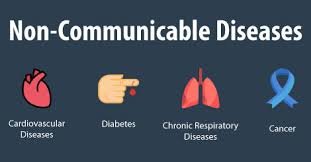The Member of Parliament (MP) for Garu, Hon. Dr. Thomas Winsum Anabah, has warned that Ghana is facing a growing national crisis caused by Non-Communicable Diseases (NCDs), including hypertension, diabetes, cardiovascular illnesses, cancers, and mental health disorders.
Speaking as Chairman of the maiden Ghana Health and Labour Summit (GHL Summit 2025), Dr. Anabah said the country risks severe productivity losses and increased health costs if urgent measures are not taken to address the rise of NCDs among the working population.
The event, held under the theme “Mobilising Against NCDs: Safeguarding Employee Wellbeing in Ghana,” convened over 300 participants, including Ministers of State, labour unions, academia, health professionals, and development partners.
“These silent killers – hypertension, cardiovascular diseases, diabetes, cancer, mental health disorders, and more – now account for over 43% of deaths in Ghana. Yet most of them are preventable”
Hon. Dr. Thomas Winsum Anabah, MP for Garu
Hon. Dr. Anabah revealed that Non-Communicable Diseases now represent one of the leading causes of death in Ghana, underscoring the urgent need for government and corporate institutions to adopt preventive strategies. He described the situation as “a preventable national burden” with profound social and economic implications.

“What is even more concerning are the principal risk factors, such as stress, poor nutrition, tobacco, long working hours, lack of physical activity, and alcohol use. These factors are increasingly common in our workplaces, and unless addressed, they will continue to undermine both health and productivity”
Hon. Dr. Thomas Winsum Anabah, MP for Garu
According to the Ministry of Health (MoH), Ghana’s healthcare system spends an estimated 18% of its total annual budget managing chronic diseases linked to lifestyle and workplace stress. Experts at the summit argued that prevention, awareness, and behavioural change must become central to Ghana’s national health agenda.
Hon. Dr. Anabah, who is also a medical doctor, emphasized that the current trajectory of NCDs poses a significant challenge to the country’s labour force. “The cost of inaction will be catastrophic,” he said, warning that untreated chronic conditions are already reducing productivity and increasing absenteeism across industries.
Workplace Wellbeing and Policy Integration
The summit highlighted the link between health and labour productivity, urging both public and private employers to take proactive steps toward improving employee wellbeing. Hon. Dr. Anabah called on businesses to integrate health promotion into workplace policies and create environments that encourage healthy living.

“We must recognise that the workplace is not just a space for economic activity but also a critical determinant of health. If we fail to protect the wellbeing of workers, we fail to protect our national development goals”
Hon. Dr. Thomas Winsum Anabah, MP for Garu
Participants at the GHL Summit, including representatives from the Ghana Employers’ Association (GEA) and major trade unions, agreed that the fight against NCDs must include reforms in occupational health standards and the introduction of mandatory workplace wellness programs.
Hon. Dr. Anabah further appealed to the Ministry of Health and the Ministry of Employment and Labour Relations to collaborate in developing policies that integrate health promotion into employment practices. He said public institutions must set an example by implementing regular health screenings, stress management programmes, and improved nutrition options in workplaces.
“The pollution from galamsey operations is contributing to the disease burden. We cannot talk about health in isolation from the environment,” he further stated, pointing to environmental contamination from illegal mining activities as an emerging public health concern, linking it to respiratory and cardiovascular complications.

The summit concluded with a joint communiqué calling for stronger public-private partnerships to tackle NCDs through awareness campaigns, early detection, and preventive healthcare. The Ministry of Health reiterated its commitment to working with labour unions and employers to “build a healthier and more resilient workforce.”
Hon. Dr. Anabah’s caution echoes growing concern from the World Health Organization that NCDs are overtaking infectious diseases as the leading cause of death across Africa, with Ghana among the most vulnerable due to lifestyle and environmental factors.
READ ALSO: Starmer Touts New UK-India Trade Deal























